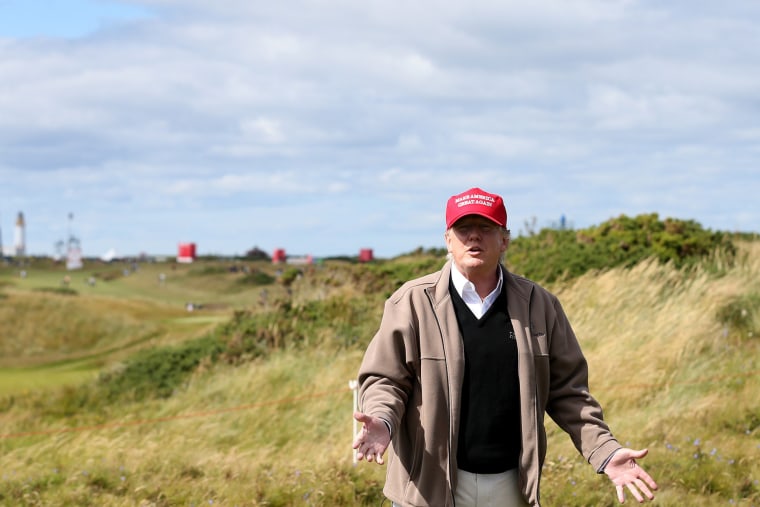Around Thanksgiving 2016, Donald Trump should've been focused on his presidential transition process. The president-elect was instead focused on the inconvenient fact that Americans were given a choice in the election, and he received far fewer votes than Hillary Clinton.
Instead of downplaying the significance of the electorate's preference for his rival, Trump came up with a conspiracy theory to make himself feel better: he secretly won the popular vote, the Republican claimed, "if you deduct the millions of people who voted illegally."
He soon after started referring to "the so-called popular vote."
On his fourth day as president, Trump hosted a private discussion with congressional leaders at the White House to discuss his legislative agenda. He spent the first 10 minutes talking about the campaign and his belief that he won the popular vote, even if reality suggested otherwise.
Fourteen months later, at an event that was ostensibly about tax policy, Trump whined incessantly yesterday about "chain migration" -- though he still doesn't understand what that means -- which he said is part of a Democratic plot to receive illegal votes. At his West Virginia event, the president added:
"A lot of times it doesn't matter because in many places, like California, the same person votes many times. You probably heard about that."They always like to say, 'Oh, that's a conspiracy theory.' Not a conspiracy theory folks, millions and millions of people."
He's still lying. We can make an educated guess as to why he's lying -- it probably pains Trump to realize voters were given a choice, and he came in second -- but as NBC News reported yesterday, there is literally no evidence to bolster the president's bizarre claims in any way.
Indeed, Trump has had ample time to uncover evidence, and his allies have made an effort to find some, but there's still nothing.
And that leaves us two notable takeaways.
First, I'm not altogether sure Trump, one of the nation's most over-the-top conspiracy theorists, fully appreciates what a conspiracy theory is. By the president's telling, millions of people were involved in a conspiracy -- which he cannot prove or substantiate -- to count illegally cast ballots. Trump now believes this is "not a conspiracy theory."
It obviously is. It's not even a good one.
Second, while I have some interest in the sitting president lying to the public and undermining Americans' confidence in the U.S. electoral system, I'm just as interested in what Trump intends to do about his nonsensical beliefs.
Throwing bizarre claims is one thing; using bizarre claims as the basis for voter-suppression tactics is something else.
